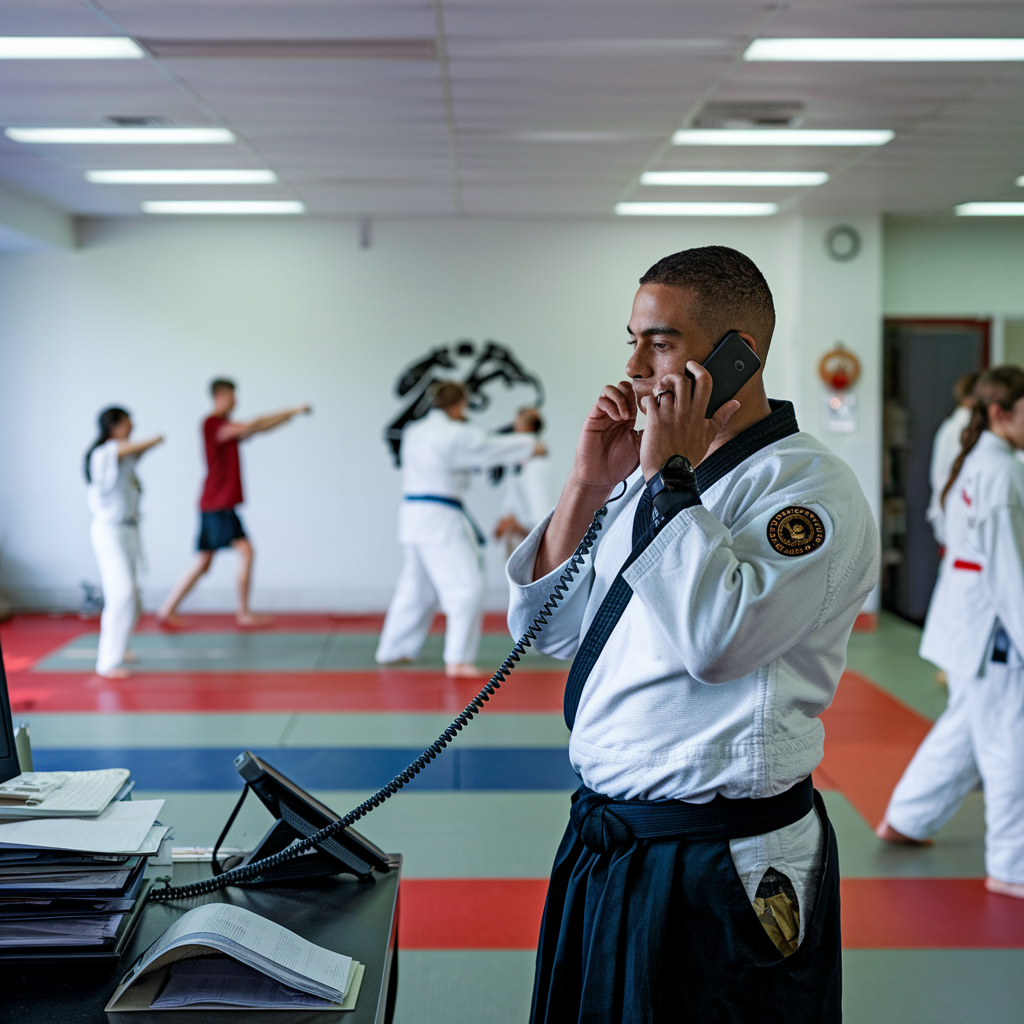
In the fast-paced and often high-pressure world of customer service, maintaining patience, control, and mental sharpness is essential for success. These qualities are also at the heart of Kendo, the Japanese martial art of sword fighting. Rooted in the discipline of the Samurai, Kendo teaches practitioners to remain composed, strategic, and resilient in the face of challenges. At Call Care Pro, we believe that adopting the mindset of a Kendo warrior can empower customer service agents to handle interactions with precision and professionalism.
The Role of Patience in Customer Service
Patience is a defining characteristic of a skilled Kendo practitioner. Unlike other martial arts that rely on brute strength, Kendo emphasizes waiting for the right moment to strike. This philosophy aligns perfectly with customer service, where patience is a crucial skill for resolving issues effectively.
Active Listening and Thoughtful Responses
Just as a Kendo fighter must carefully observe their opponent before making a move, customer service agents must actively listen to customers before responding. Rushing into a response without understanding the full context can escalate conflicts and lead to miscommunication. Instead, taking a moment to listen, process the information, and respond thoughtfully can lead to better resolutions and a more satisfying customer experience.
Managing Frustration in High-Stress Situations
Difficult customers and challenging situations can test an agent’s patience. However, much like a Kendo warrior who remains calm and focused during combat, a skilled customer service representative must learn to control their emotions and approach each interaction with a composed mindset. Techniques such as deep breathing, mental reframing, and positive reinforcement can help agents remain patient even in the most difficult calls.
Control: The Power of Strategic Thinking
Kendo is not about reckless attacks; it is about control, precision, and strategy. This principle applies directly to customer service, where the ability to control conversations, guide interactions, and manage difficult situations is key to success.
Steering Conversations with Confidence
In Kendo, the fighter dictates the pace of the match through strategic movements and well-timed strikes. Similarly, customer service agents must learn to steer conversations in a positive direction by maintaining control over the dialogue. This involves setting the tone of the conversation, using assertive but polite language, and providing solutions that keep the customer engaged.
Defusing Conflict with a Calm Presence
Just as Kendo practitioners must avoid unnecessary aggression and focus on skillful movement, customer service agents must learn to de-escalate conflicts rather than intensify them. Using calming phrases such as “I understand your frustration” and “Let’s find a solution together” can help diffuse tension and create a more cooperative atmosphere.
Mental Sharpness: The Key to Adaptability
Kendo fighters must remain mentally sharp, constantly assessing their opponent’s movements and adapting their strategy in real time. Likewise, customer service agents need to stay sharp and adaptable, as every customer interaction is unique.
Quick Thinking Under Pressure
Customer service often requires on-the-spot problem-solving. Whether handling a complex technical issue or addressing an angry customer, agents must be able to think quickly and provide solutions without hesitation. Training in real-life scenarios and role-playing exercises can enhance an agent’s ability to adapt in the moment.
Continuous Learning and Self-Improvement
Kendo is a lifelong pursuit, with practitioners continuously refining their skills through practice and self-discipline. Similarly, customer service professionals should always seek opportunities to grow, whether through additional training, learning from customer feedback, or improving their communication techniques. A mindset of continuous learning leads to better performance and career development.
Applying Kendo Principles to Customer Service Training
To truly integrate the discipline of Kendo into customer service, companies can implement training programs that focus on patience, control, and mental sharpness. Here are some practical ways to do this:
1. Patience Training through Role-Playing
Agents can practice handling difficult customers in simulated scenarios where they must remain calm, listen actively, and respond thoughtfully. This helps reinforce the importance of patience and prevents knee-jerk reactions.
2. Control Techniques through Communication Workshops
Workshops on assertive communication, active listening, and de-escalation techniques can teach agents how to maintain control over interactions while ensuring customers feel heard and respected.
3. Mental Sharpness through Rapid Response Drills
Timed problem-solving exercises can train agents to think quickly and make sound decisions under pressure. Simulating high-stress situations helps agents develop the ability to stay sharp and adaptable in real interactions.

The Bushido Code and Customer Service Ethics
Kendo is deeply connected to the Bushido Code, the ethical code of the Samurai. Several principles of Bushido can also guide customer service agents in their approach to work:
- Rectitude (Gi): Always act with integrity and fairness when helping customers.
- Courage (Yu): Face difficult conversations with confidence and professionalism.
- Benevolence (Jin): Show empathy and kindness, even to frustrated customers.
- Respect (Rei): Treat every customer with respect, regardless of the situation.
- Honesty (Makoto): Provide truthful and transparent information.
- Honor (Meiyo): Take pride in providing exceptional customer service.
- Loyalty (Chugi): Stay committed to the company’s values and mission of helping customers.
By embracing these Bushido principles, customer service professionals can approach their work with the same discipline and integrity that defined the Samurai warriors.
Conclusion: The Way of the Warrior in Customer Service
The discipline of Kendo teaches valuable lessons that can transform customer service interactions. By embracing patience, control, and mental sharpness, agents can navigate even the most difficult customer interactions with professionalism and confidence. Just as Kendo warriors continuously refine their skills, customer service agents should also commit to ongoing learning and self-improvement to deliver exceptional service.
At Call Care Pro, we encourage our team to adopt the Kendo mindset, ensuring that every customer interaction is handled with grace, discipline, and strategic thinking. By applying these time-tested principles, companies can cultivate a team of resilient, skilled, and customer-focused professionals who consistently deliver top-tier service.
Want to learn how Call Care Pro can elevate your customer service experience? Contact us today and let’s discuss how our expertise can benefit your business!

